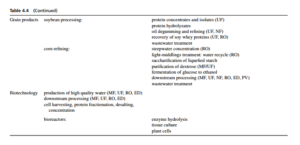0
-
An empty cart
You have no item in your shopping cart
The first reference to the use of filters for clarifying water, milk and wine can be found in Egyptian times. From wool and cloth, paper and charcoal to sea sand and sacking, many materials were used and found to be inadequate. It was not until the latter part of the nineteenth century, in Germany, that a satisfactory filter material was found to filter wine. That material was in fact asbestos.
In 1916 the sterile filter sheet became available for sterilizing filtration for the beverage and dairy industries. Other applications were soon found for this material, including vaccines, cosmetics, sugar, ink, film and paint processing. Today, however, asbestos is no longer used in the manufacture of filter sheets because of its toxicity. Considerable research has resulted in the availability of asbestos-free filter sheets that utilize cellulose fibres and mixtures of natural (uncalcined) kieselguhr and perlite. Other types of sheet also incorporate an advanced resin system.
Milk, beer, wine, soft drinks, potable water, syrups, edible oils, etc. must be filtered with products made from components complying with international food and drug regulations for food contact use. Extraction of binders or chemical additives from the filter and the migration of media fragments into the food are highly undesirable. Many pleated glass or resin-bonded fibre filter cartridge elements do not meet the food and drug standards (e.g. FDA regulations) because they can introduce glass fibres or resins into the product. Generally a binder-free, thermally bonded filter cartridge is preferred.
However, membrane filters are now standard for clarification duties in the brewery industry and are reasonably widespread throughout the whole of the food and beverage business as is shown in Table 4.4.
Depth filter cartridges can provide advantages in capital and operating costs over conventional sheet filtration using a plate and frame filter press. Polishing filters now produce beers with high clarity and low turbidity. Membrane filters also provide for microbiologically stable beer without the need for pasteurization. Aseptic packaging by means of filtration avoids the cost and negative flavour impact of pasteurization. Cold sterile filtered draught and bottled beers are very much in vogue and are an integral part of the entire production process.
Membrane filters have many advantages over thermal treatment (pasteurization), and should be technically capable of meeting the following specifications:
● retention of micro-organisms harmful to beer at low products temperatures
● no negative effect on essential beer specific components
● no ion release
● regeneratable with hot water
● effective regeneration with chemical agents
● no hydrolysis
● good wettability
● low product losses
● simple handling
● manual or fully automatic concepts
● low liquor and energy consumption figures
● cost-effective filtration because of high service life, and
● integrity testable.
Among the newer developments in membrane filtration in the brewing industry, ceramic cross-flow filtration membranes are gaining ground due to the fact that


the pore size of the membrane can be controlled by the manufacturer and adjusted to the specific needs of the end-user. The pore size of a cross-flow microfiltration membrane has a considerable impact on the nature of the gel layer, or fouling, of
the membrane, which in turn affects both beer flux and quality. It should be noted that definitions of pore size may well differ among membrane suppliers.
The filtration of bottle and keg washing water are applications that are frequently overlooked. Proper filtration of wash water is especially important when the bottle or keg will not be pasteurized. Micro-organisms from poorly filtered water can
recontaminate non-pasteurized beer. Wash water should be filtered as carefully as the beer itself. Filtering sanitized water is also important, and should be carried out to at least the same level as for the process filters it will be sanitizing.
Infection of the wort damages beer quality, and a major source of contamination is improperly filtered aeration of the wort. Aeration requires a clean, well-filtered sterile air source for successful beer production. Hydrophobic (non-wettable) membrane filter cartridges are ideal for sterile air and gas filtration.